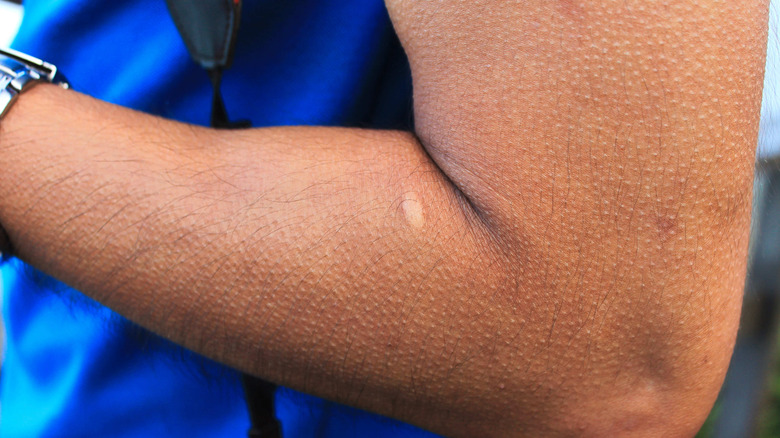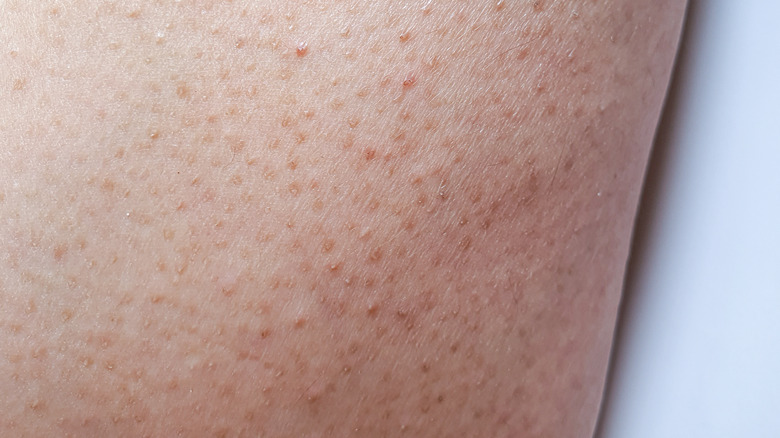What Is Keratosis Pilaris, And Can You Get Rid Of It?
Have you ever gotten goosebumps when it's not cold outside and you haven't been watching scary movies? You may have keratosis pilaris, commonly known as chicken skin (via Healthline). This dermatological condition is likely something you inherited, and it's totally harmless. Keratin, a protein that forms the basis of our hair and nails, blocks a hair follicle from opening up, causing a bump to form in its place (via Verywell Health). Its appearance is usually made worse when skin is dry or when it hasn't been washed for awhile, as dead skin cells pile up and aren't sloughed off (via American Academy of Dermatology).
Keratosis pilaris is such a simple and common condition that there is no complex process for diagnosing it. Your dermatologist will simply look at your skin and be able to tell you if it's what you have (via Mayo Clinic). You may have noticed it yourself if you absent-mindedly picked at a bump and found a hair pop out when the dead skin covering it was removed.
Can you get rid of keratosis pilaris?
The downside of this natural, safe, and common condition is that it's so natural and common that it can't really be cured. Keratosis pilaris typically goes away on its own around age 30, though flare-ups can occur due to hormonal changes (via Healthline). There are no health risks associated with it, so there's no need to do anything aside from keeping up with a normal showering regimen to keep it in check.
If your keratosis bothers you for aesthetic reasons, though, there are many over-the-counter products that may reduce the appearance of your bumps or dry patches. Light exfoliation (such as with a face sponge or body loofah) can help remove dead epidermis cells from the surface of your skin, as can moisturizing creams that contain alpha hydroxy acid (AHA), lactic acid, or salicylic acid (via Mayo Clinic). To prevent clogged hair follicles, products containing retinoids have been shown to be helpful, but as these can be very irritating to people with particularly dry skin, you should talk to a dermatologist before you start using one.


